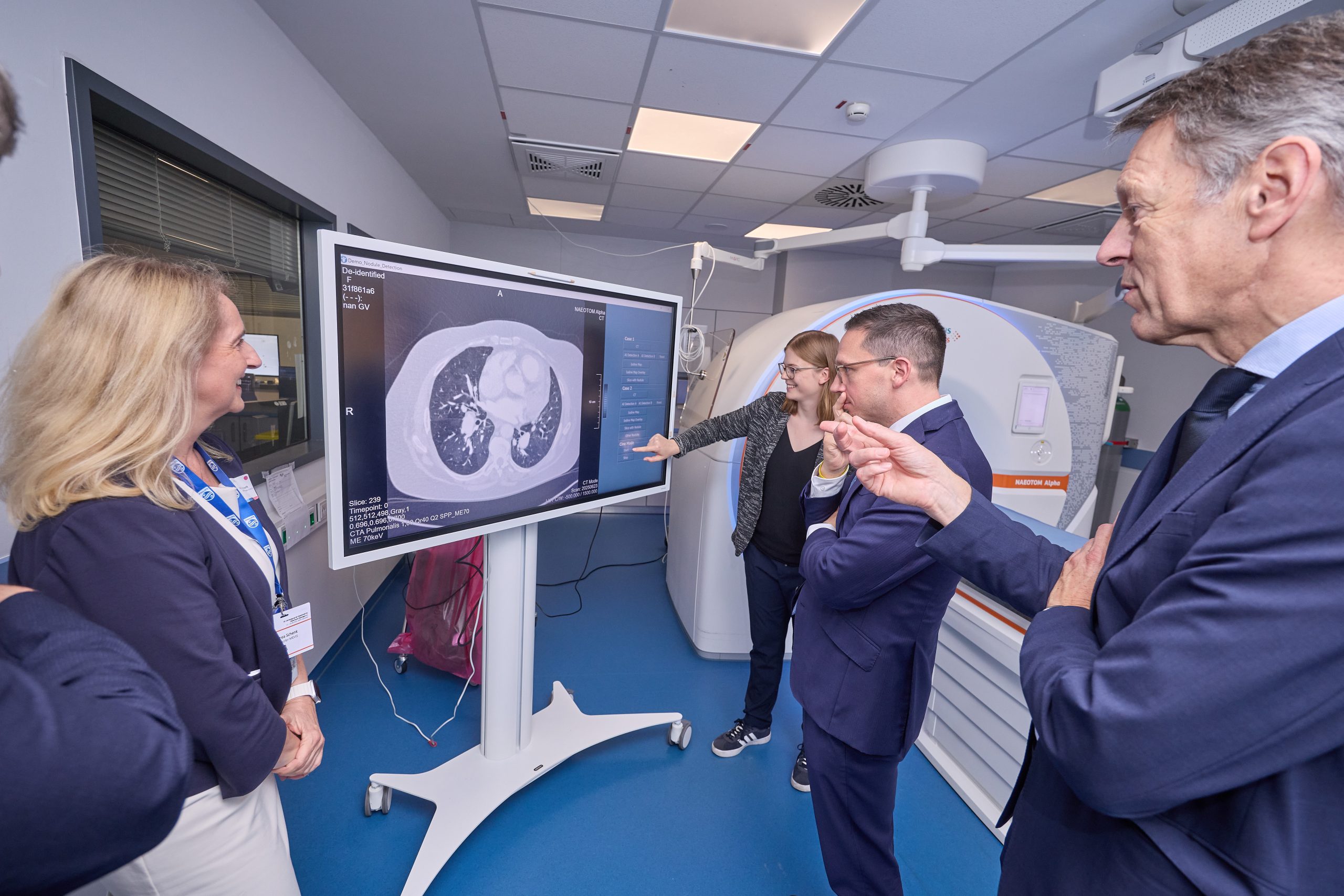Lower Saxony's Minister of Science Falko Mohrs and the CEO of the Volkswagen Foundation Dr. Georg Schütte have visited the Lower Saxony Center for Artificial Intelligence and Causal Methods in Medicine (CAIMed) at the medical school hannover They learned about current projects involving AI-supported healthcare and personalized medicine.
Research with direct clinical benefits
“The methods developed at CAIMed show how artificial intelligence can make clinical decisions more precise and will shape healthcare in the future,” said MHH President Professor Denise Hilfiker-Kleiner. CAIMed spokesperson Professor Wolfgang Nejdl added: “Based on groundbreaking basic research and powerful foundation models, we are developing AI methods that are technically advanced and transparent for doctors and nursing staff.”
Practical insights
Live demonstrations gave guests insights into the medicine of the future. In cytology, AI image analysis and deep learning enable better cervical cancer diagnostics. AI tools analyze thousands of cells in a very short time, flagging abnormalities and thus increasing the precision and speed of findings. In oncology, AI methods help identify extrachromosomal DNA, opening up new avenues for individualized therapies. Models also help to better predict long COVID and develop effective prevention strategies—a particular benefit for the long-term care of patients.
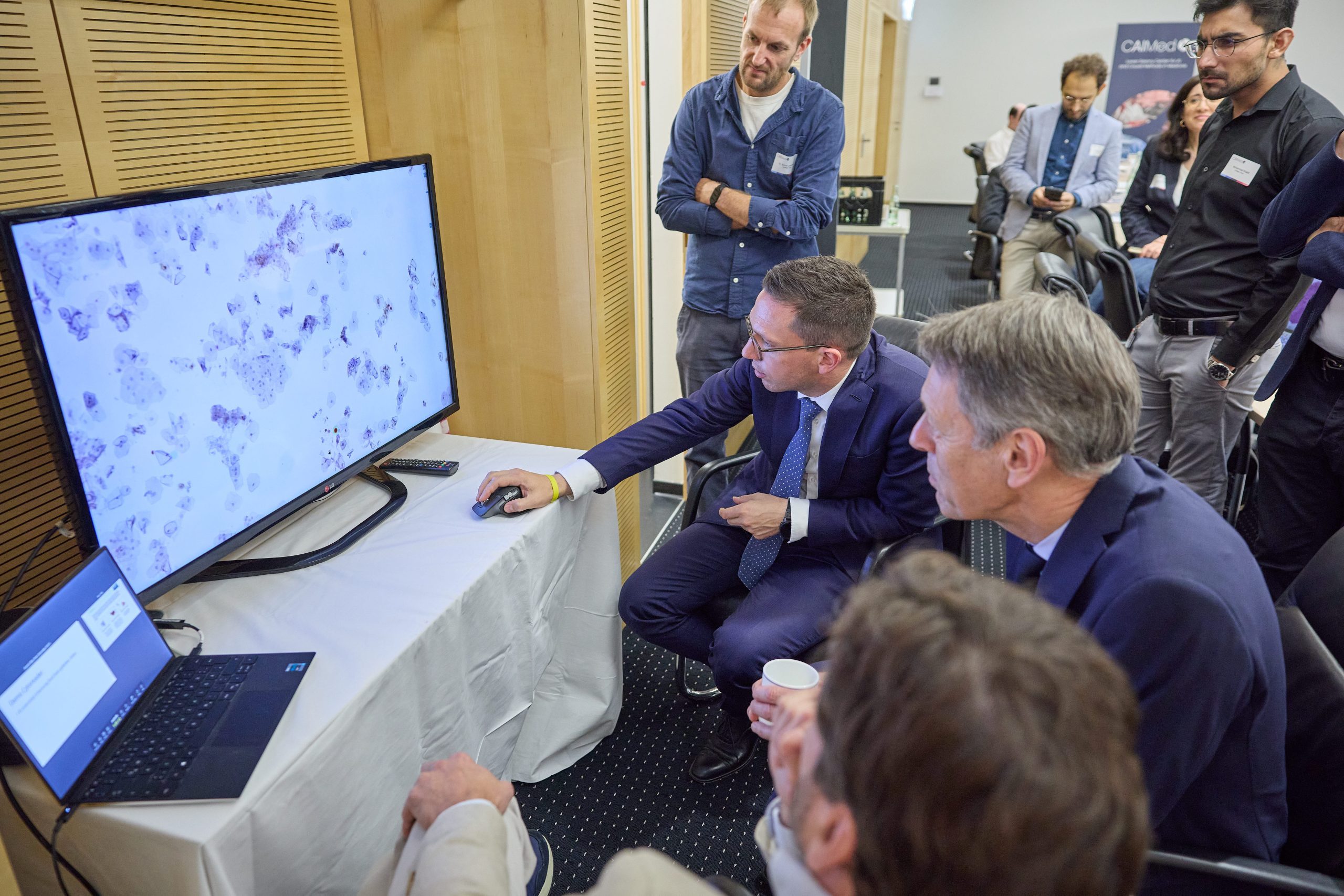
Application in everyday clinical practice
Significant effort is required to ensure that promising research finds its way into clinical application. In radiology, CAIMed researchers and clinicians demonstrated how AI-supported CT analyses enable faster and more accurate detection of pulmonary nodules, representing a major step forward in accelerating diagnostics and reducing the burden on patients. In the pediatric intensive care unit, CAIMed researchers presented a predictive model for nosocomial sepsis that provides early warning of impending blood poisoning with a high degree of accuracy and can contribute to patient care and relieve the burden on clinical staff. The telemedicine workstation can support children's hospitals throughout Lower Saxony and promote good healthcare across the region.
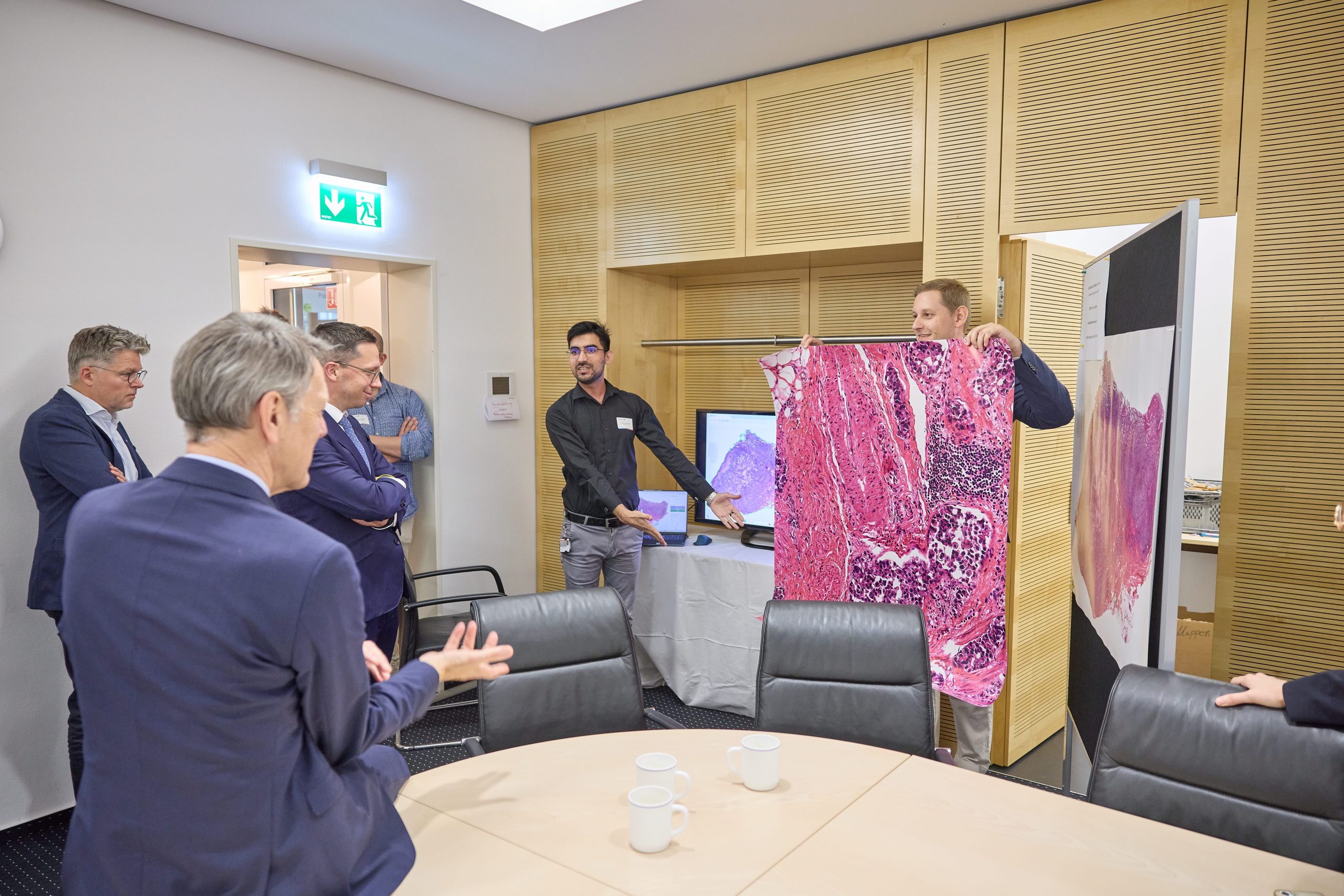
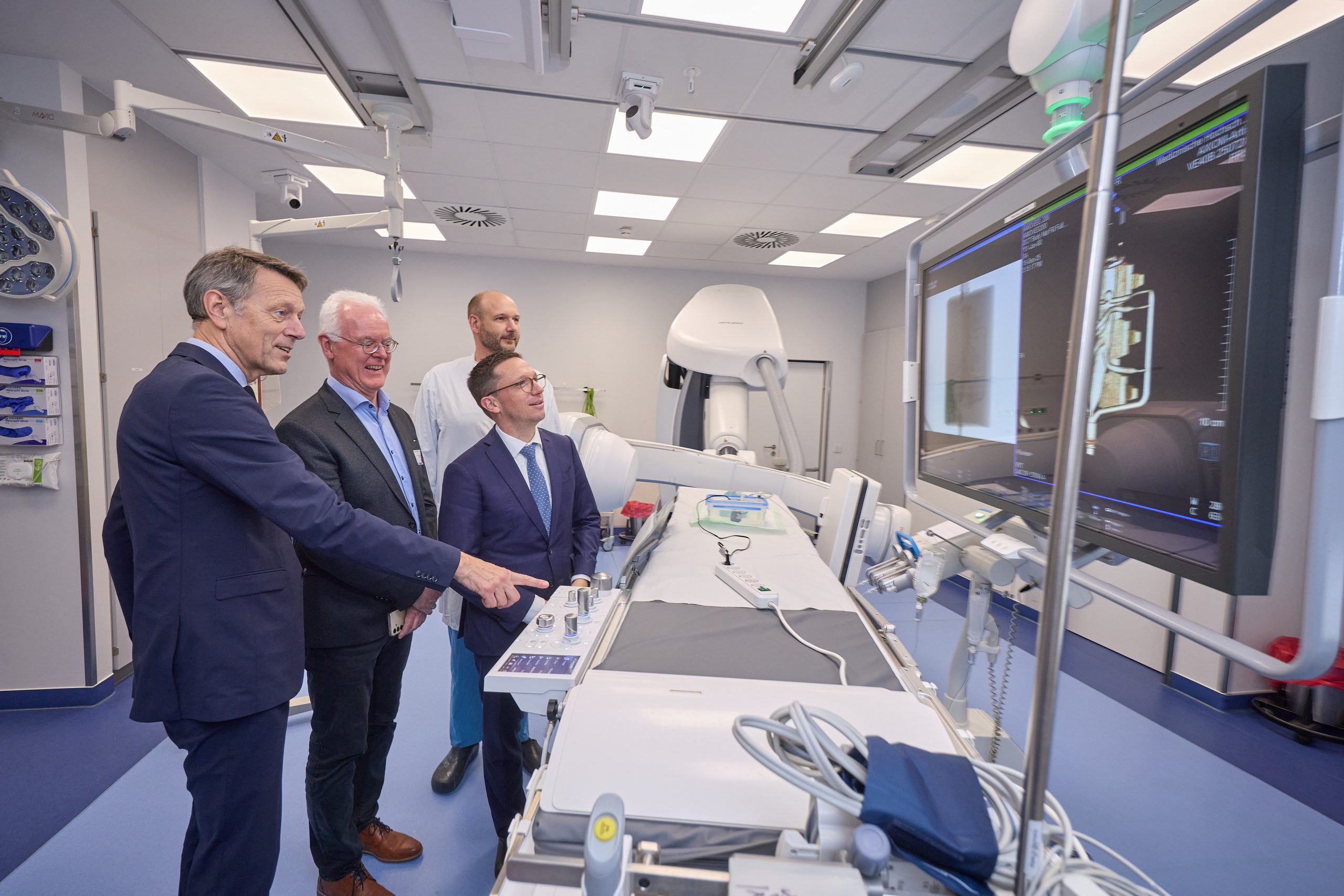
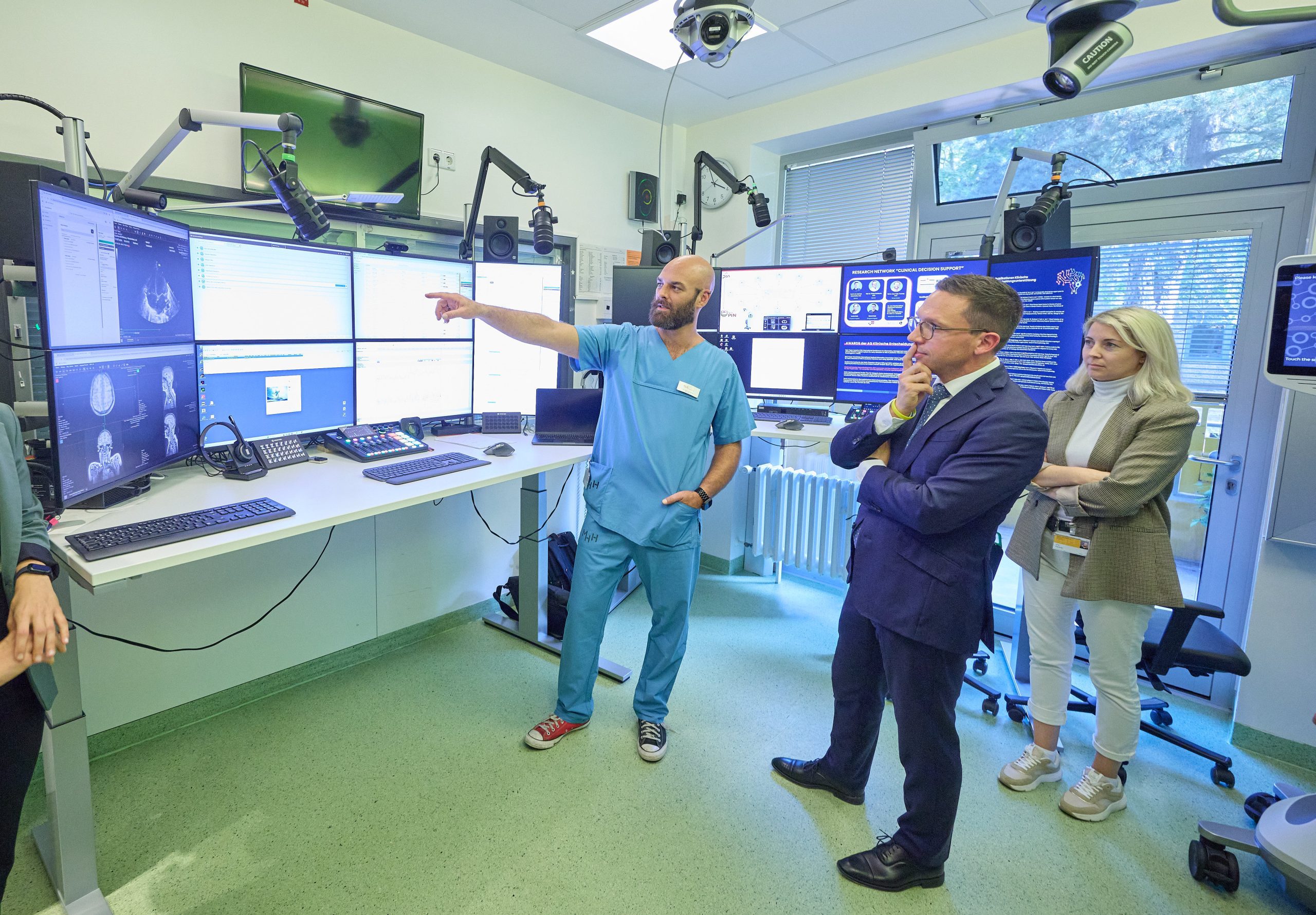
Lower Saxony as a pioneer
“The visit to CAIMed demonstrates the exceptional quality of AI research in Lower Saxony and its direct benefits for clinical application,” emphasized Minister Mohrs. Dr. Schütte emphasized: “The combination of cutting-edge AI method development, excellent medical research, and outstanding clinical practice creates a unique innovation ecosystem for the healthcare of tomorrow.”
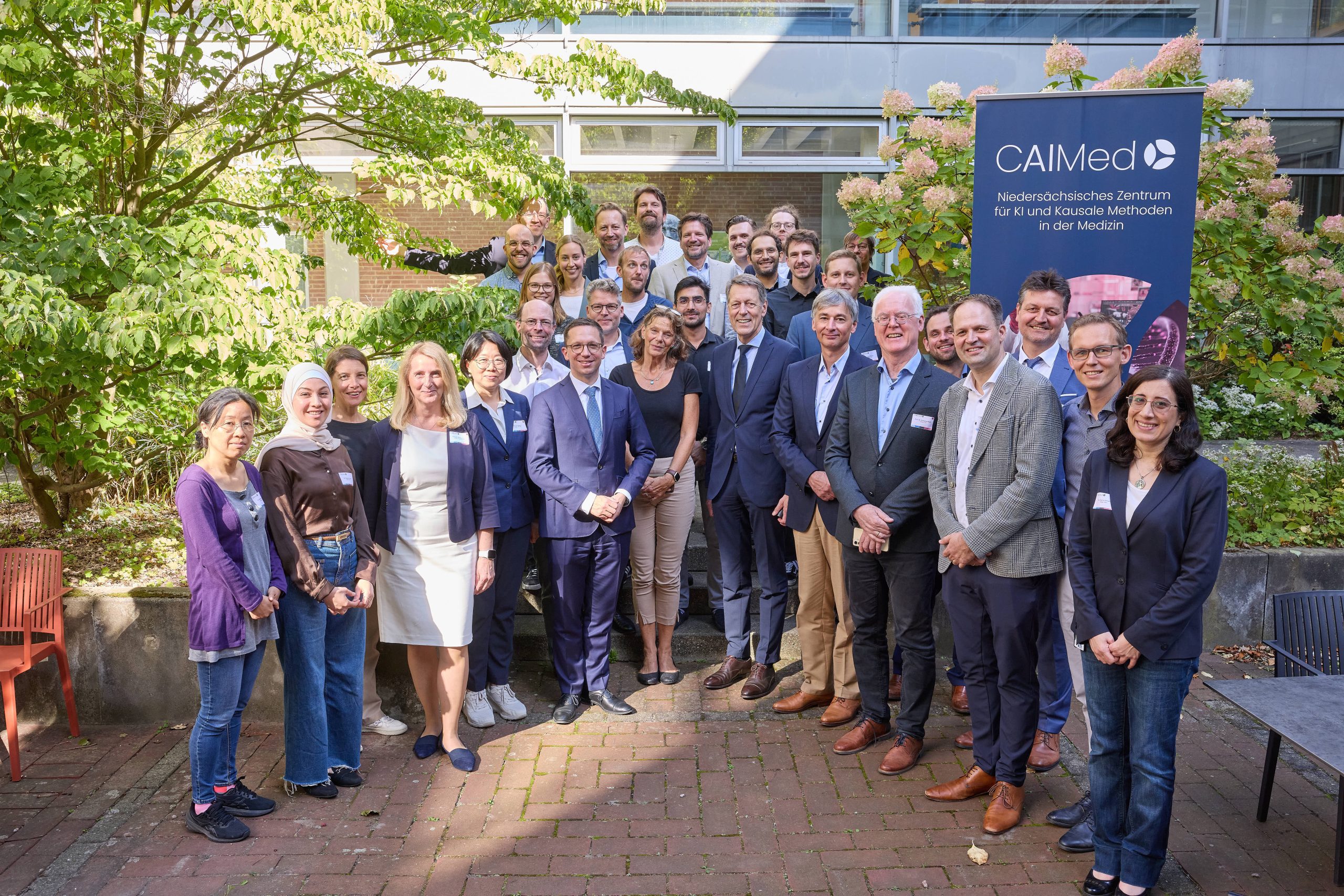
About CAIMed
The CAIMed consortium includes the AI Research Center L3S at the Leibniz University Hannover, the Hanover Medical School, the Campus Institut Data Science the University of Göttingen, the University Medical Center Göttingen, the Helmholtz Centre for Infection Research and the TU Braunschweig .
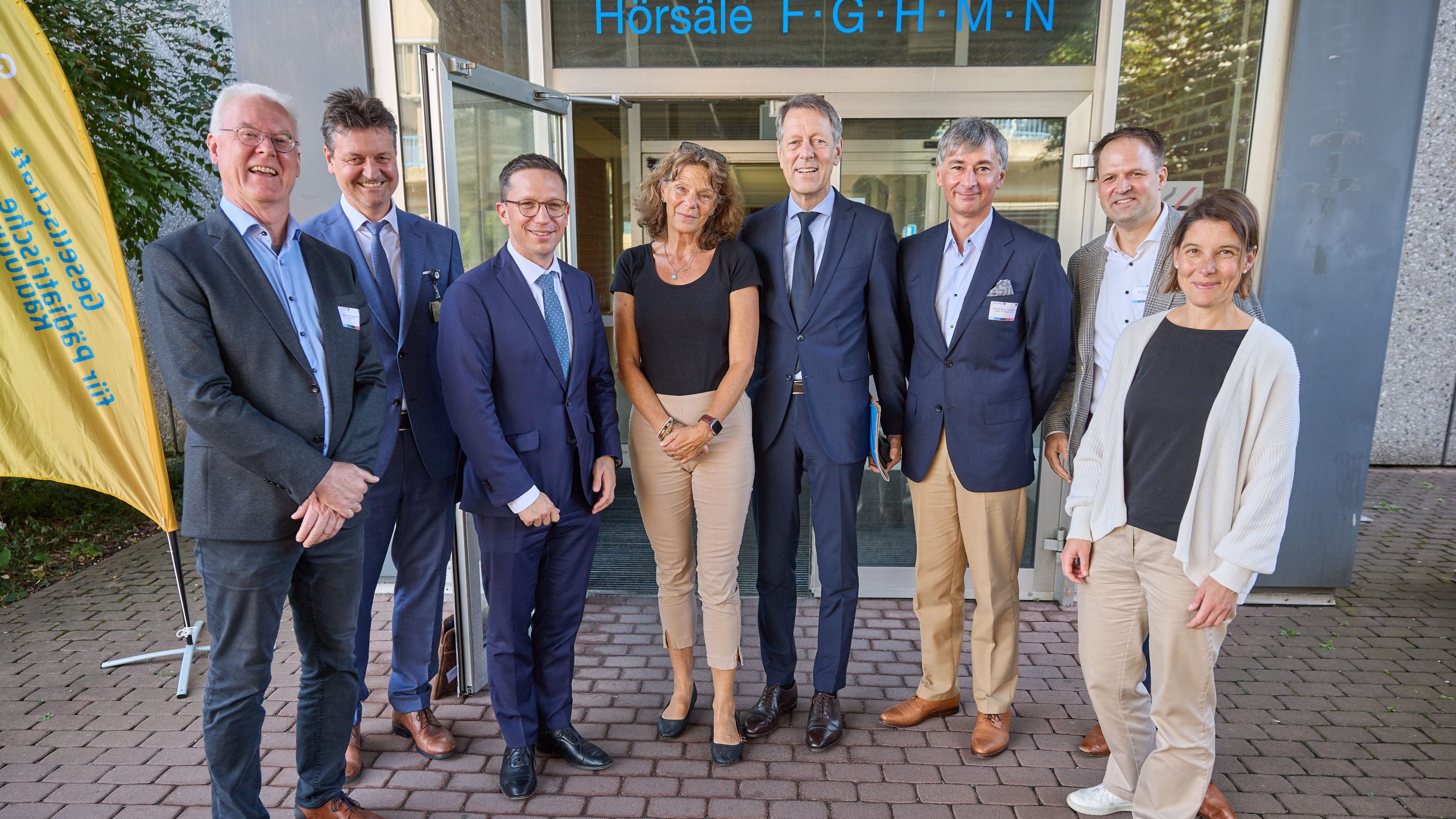
CAIMed is funded by zukunft.niedersachsen, the joint science promotion program of the Niedersächsischen Ministeriums für Wissenschaft und Kultur and the VolkswagenStiftung.
Fotos: Copyright Christian Wyrwa

